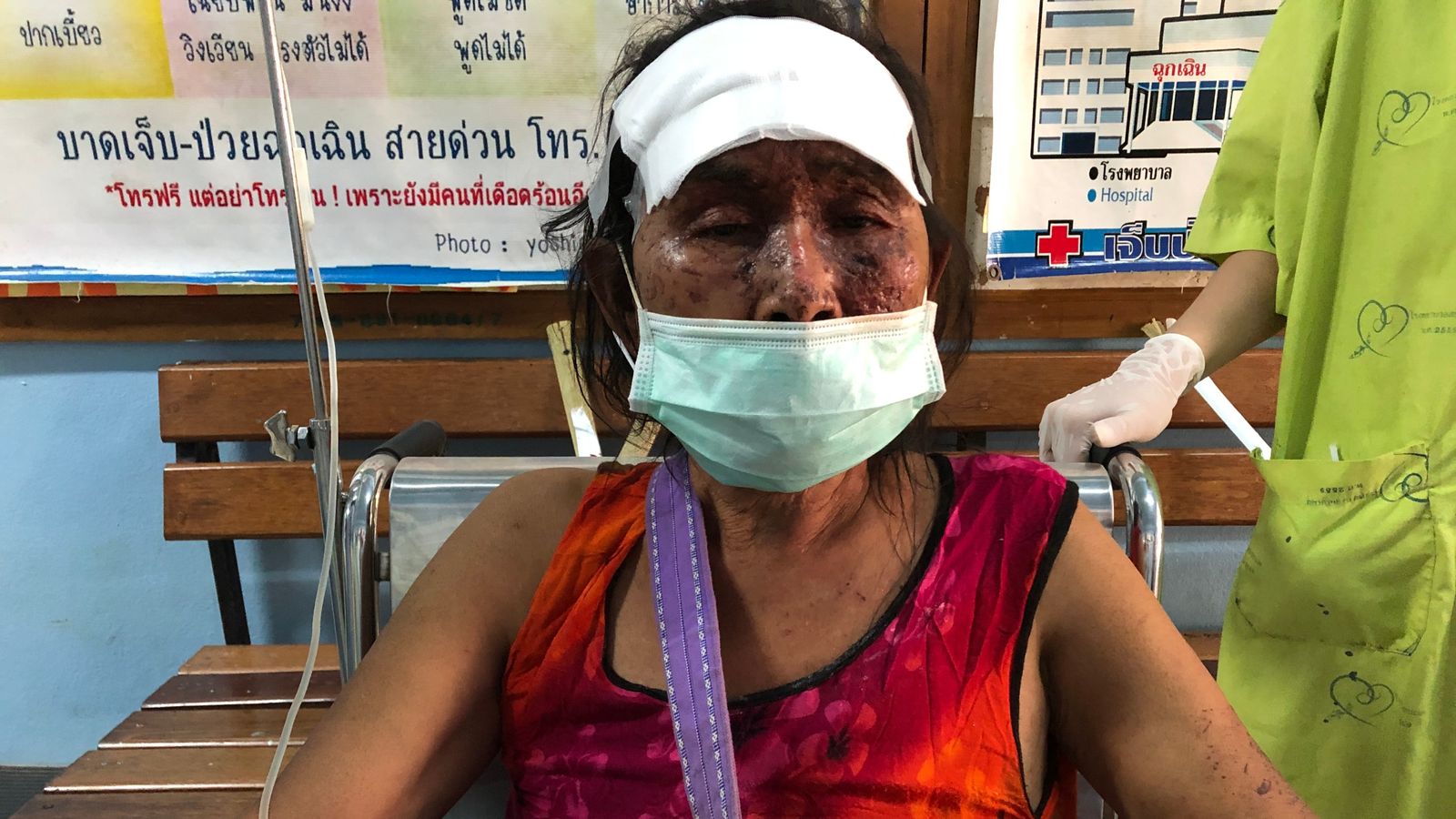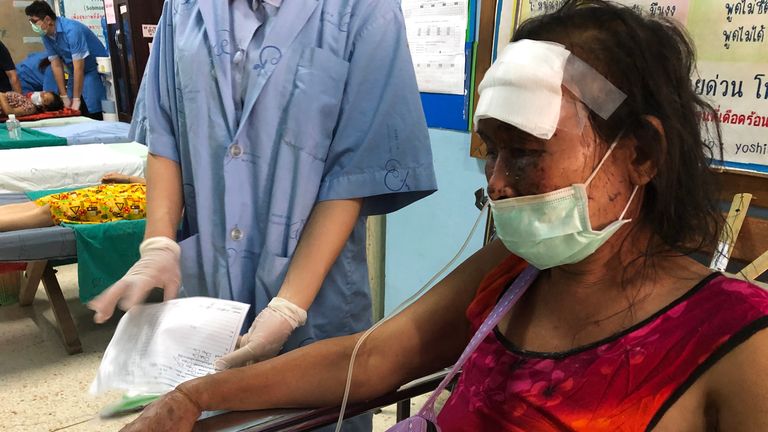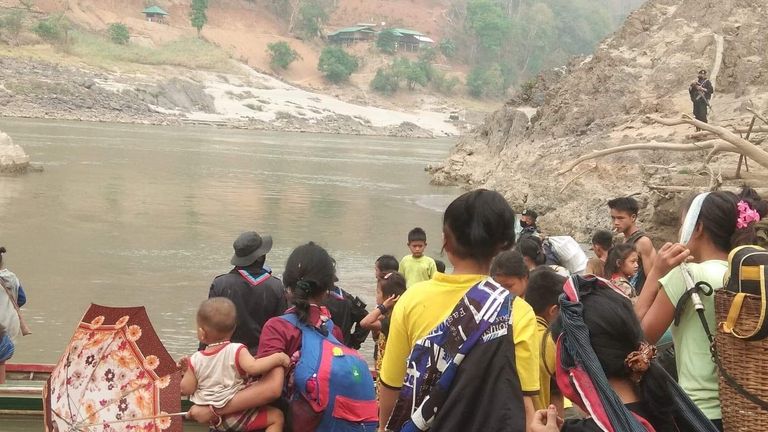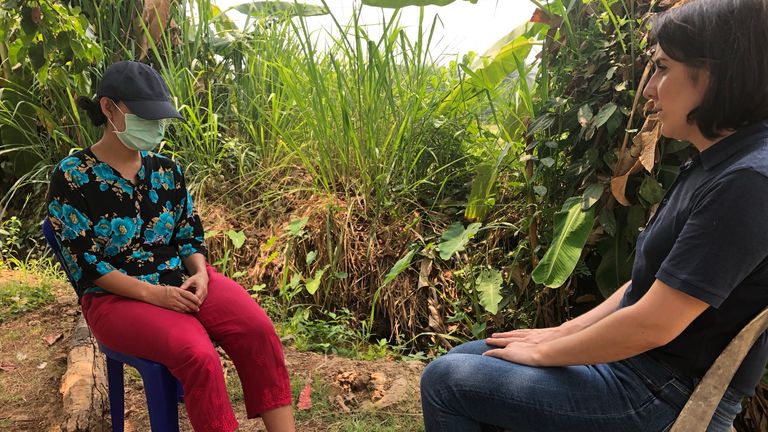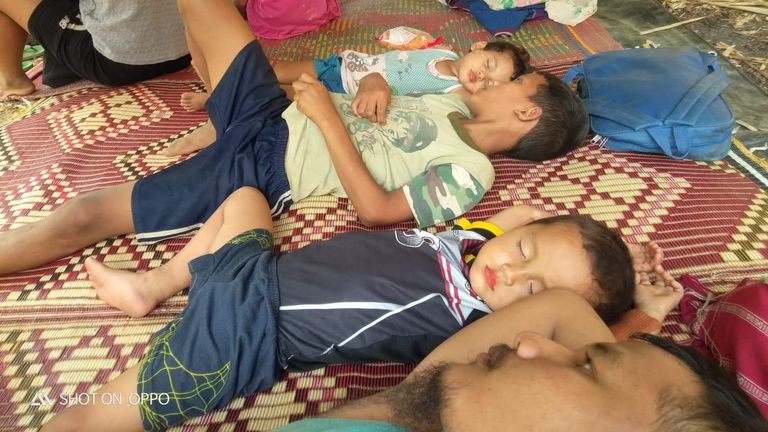Bea Tu’s pain is visible; her face is covered with burns and cuts, and her eyes are swollen.
These injuries are no accident.
In a raspy, slow voice she explains she was injured in Saturday’s airstrike on Karen State by Myanmar‘s military.
“The bomb was dropped in the village,” a nurse who is treating her adds.
Bea was injured on 27 March when planes sent by the junta attacked villages, destroying a home and killing several people.
Fresh raids have been reported every day since.
Weak and exhausted, Bea says she went three days without food, eventually crossing the river to escape.
Today, with six other injured people, she was brought across the border to Thailand to get medical treatment.
It’s in the Thai hospital that we meet her, surrounded by the other patients. Some have burns to their feet, others deep bruising on their bodies.
They are aged from 15 years old to 60, according to the hospital chart.
Saw Lah Bri, 48, sits in a wheelchair.
He was in Day Bu Noh village when the planes arrived. He has shrapnel wounds and his hearing has been damaged from an explosion.
“As I ran the bomb dropped and hit us,” he says, “There were six people in our group, one died.”
The story of the wounded here is one of terror and pain – civilians hurt by the military on the day it pledged to protect the people.
As the airstrikes in Karen State continue, it’s likely more people will flee but already some of those who sought refuge in Thailand say it’s been denied.
Activists show us footage that they say proves sick and elderly were among more than 2,000 people sent back to Myanmar.
B’s three-year-old son was with them.
Her name changed to protect her identity, B says that her son and his aunt fled to Thailand to escape airstrikes over the weekend.
On Monday, she says Thai soldiers arrived and told the refugees it was time to leave.
“None of the refugees that returned are living in their own houses. They are all hiding because they know that the military regime will continue bombing. So they dare not stay at home,” she says.
Now she is worried about her son’s safety, not only fearing that the army may attack again but also that he may become sick as he hides in the forest.
B is adamant that her family was forced back, an allegation the Thai prime minister again denied.
“We have discussed with those who entered Thailand. We asked them if they have any problem in their area. When they say no problem, we just asked them to return to their land first. We asked, we did not use any force,” Prayuth Chan-ocha said.
Free Burma Rangers estimate more than 10,000 people have been displaced by fighting with the military in Karen State since late last year.
The majority have fled since the 1 February coup.
Sheltering in forests and caves, those driven from their homes in Myanmar by violence take refuge where they can, unsure when their villages will be safe again.
